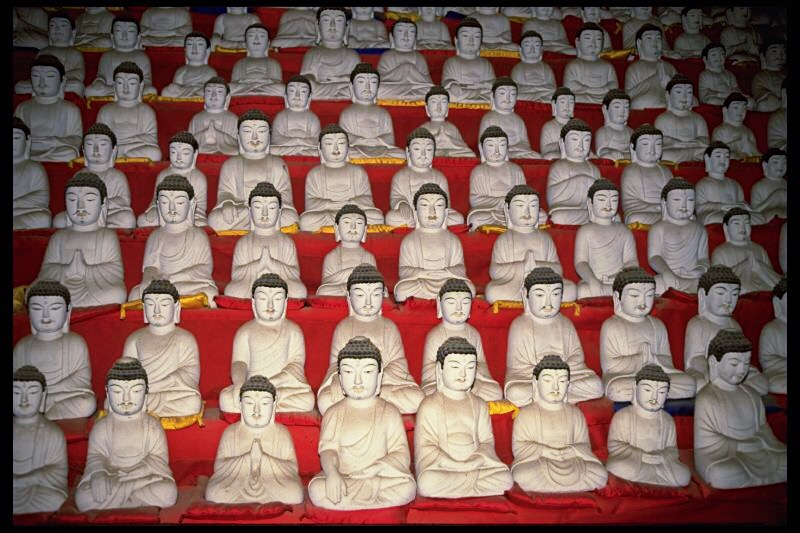The Mind-Training Slogans, Slogan #45
Each Friday, Acharya Judy Lief, teacher in the Shambhala tradition of Chogyam Trungpa Rinpoche, comments on one of Atisha’s 59 mind-training (Tib. lojong) slogans, which serve as the basis for a complete practice.
Atisha (980-1052 CE) was an Indian adept who brought to Tibet a systematized approach to bodhicitta (the desire to awaken for the sake of all sentient beings) and loving-kindness, through working with these slogans. Judy edited Chogyam Trungpa’s Training the Mind (Shambhala, 1993), which contains Trungpa Rinpoche’s commentaries on the lojong (“mind-training”) teachings.
Each entry includes a practice.
Read all the lojong slogans here.
45. Take on the three principal causes
It is good to be aware of the convergence of circumstances that makes it possible for you to practice the dharma. By attending to the underpinnings that support you on the path, you can create and maintain a strong base for moving forward. You can develop greater appreciation for your good fortune, and not take it for granted.
At the same time, it is also good to remind yourself that many people do not have such good circumstances. Because you recognize that people need support in order to practice the dharma, you can aspire to provide for others the same kind of support system that you yourself have benefited from.
The first principal cause is the teacher. You may have first heard about the dharma through a book, or a magazine, or a video, or from a friend, or even from an ad on TV, but no matter the medium, if you trace it back, these teachings come from real live human beings, beginning with the Buddha himself. Without the hard work and sacrifices of many generations of teachers, you would never have heard about the possibility of mind training.
The second principal cause is to realize the importance of mind training. We all have the ability to work with our own minds; it is our natural capacity. But although all people have this capacity, few act on it. So recognizing that mind training is both possible and important, and acting on that recognition, is the second strong support for practice.
The third principal cause is to have adequate social and economic support for your practice. You need to be practical. In order to create the time and conditions for furthering your practice and understanding of mind training, you need to take care of business. You need to find a way to cover your basic needs for food, clothing, shelter, etc.
Today’s practice
What kinds of supports could you put in place to help strengthen your practice? Do you need more guidance (the first cause), more confidence and conviction (the second cause), or a more stable social or economic base (the third cause)?
Thank you for subscribing to Tricycle! As a nonprofit, we depend on readers like you to keep Buddhist teachings and practices widely available.

